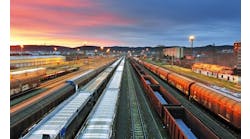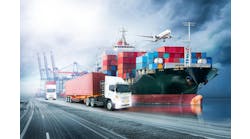Maersk to Operate First Carbon Neutral Liner Vessel by 2023
As a result of fast-tracked advances in technology and increasing customer demand for sustainable supply chains, A.P. Moller – Maersk announced recently that it will accelerate the efforts to decarbonize marine operations with the launch of the world’s first carbon-neutral liner vessel in 2023. This is ahead of the initial 2030 goal.
“A.P. Moller - Maersk’s ambition is to lead the way in decarbonizing global logistics,” said Søren Skou, CEO, A.P. Moller – Maersk, in a statement. " Our customers expect us to help them decarbonize their global supply chains, and we are embracing the challenge, working on solving the practical, technical and safety challenges inherent in the carbon-neutral fuels we need in the future. Our ambition to have a carbon-neutral fleet by 2050 was a moonshot when we announced it in 2018. Today we see it as a challenging, yet achievable target to reach.”
Maersk’s methanol feeder vessel will have a capacity of around 2000 TEU and be deployed in one of its intra-regional networks. While the vessel will be able to operate on standard VLSFO, the plan is to operate the vessel on carbon-neutral e-methanol or sustainable bio-methanol from day one.
Both the methanol-fueled feeder vessel and the decision to install dual-fuel engines on future new buildings are part of Maersk’s ongoing fleet replacement. CAPEX implications will be manageable and are included in current guidance.
All future Maersk-owned new buildings will have dual-fuel technology installed, enabling either carbon-neutral operations or operation on standard very low sulfur fuel oil (VLSFO).
The company's commitment on decarbonization:
- 2023 World's first carbon-neutral liner in operation
- 2030 60% relative CO₂ reduction from shipping
- 2050 Net-zero CO₂ emissions
Around half of Maersk’s 200 largest customers have set – or are in the process of setting –science-based or zero-carbon targets for their supply chains.
Strengthened collaboration to solve the challenges
A carbon-neutral future for shipping requires innovation, test and collaboration across multiple industry partners, the company said in a release. Therefore the company said it continues to explore several carbon neutral fuel pathways and expects multiple fuel solutions to exist alongside each other in the future. Methanol (e-methanol and bio-methanol), alcohol-lignin blends and ammonia remain the primary fuel candidates for the future.
A key collaboration partner is the Mærsk Mc-Kinney Møller Center for Zero Carbon Shipping, an independent, non-profit research and development center, that works across sectors, organizations, research areas and regulators to accelerate the development and implementation of new energy systems and technologies.



